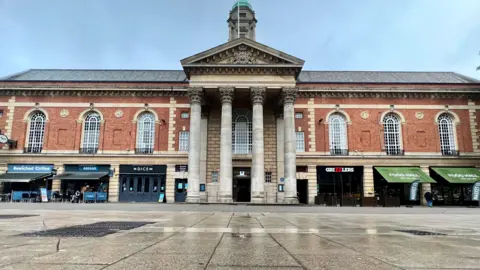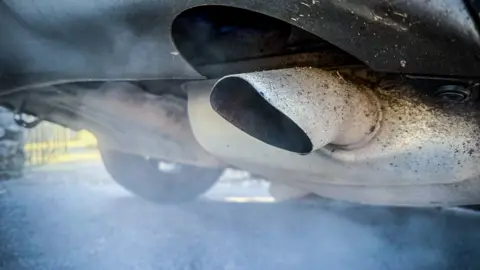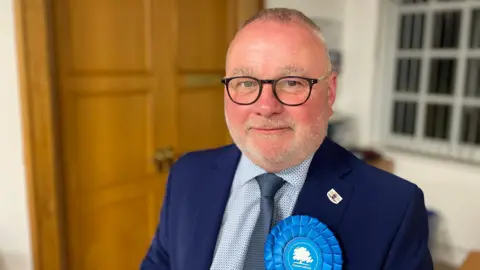Net zero carbon roadmap to 2030 agreed by council
 BBC
BBCA city council has agreed a roadmap to achieve net zero carbon emissions by 2030.
Peterborough City Council signed off on the report, which lays out ways it could further reduce its own emissions, but stops short of allocating funding.
It was welcomed by most councillors, but described as "woke nonsense" by the leader of the council's Conservative group.
The council unanimously declared a climate emergency in 2019, when it also committed to its 2030 target.
The report, presented by the council's Labour administration, said "significant progress" has already been made towards decarbonisation, with a 28.6% decrease in CO2e emissions between 2018-19 and the most recent reporting year of 2022-23.
 Getty Images
Getty ImagesThe city council said that, in future, it could improve building insulation, introduce motion activated lighting in car parks and switch from diesel to renewable hydrotreated vegetable oil (HVO) for its vehicles.
But even if all of the quantified steps laid out in the roadmap were implemented in full, it would still only amount to a 78% reduction in the council's emissions compared to 2018/19.
"Additional unquantified measures, along with advances in technology, are expected to help reduce these emissions further," the report said.
Too far...?
Former council leader Wayne Fitzgerald said at a meeting that he was "sick and tired of this net zero nonsense", which he described as "woke".
He said the 2030 target was "unachievable" and that he would repeal the council's declaration of a climate emergency if he was ever elected council leader again.

Peterborough First councillor Gavin Elsey said there were a "number of people across the country who have an alternative opinion on carbon and the effect on global warming" and that a resident who had written to councillors about this did not appear to have been given a "fair voice".
Council leader Dennis Jones compared Mr Fitzgerald's comments to those of US president Donald Trump.
...Or not far enough?
Liberal Democrat group leader Christian Hogg said he was concerned the council was being asked to do "70% of the work in half of the time".
He also raised the issue of cost, saying HVO was more expensive than diesel and reduced a vehicle's mileage per gallon.
Another Lib Dem councillor, Chris Wiggins, raised concerns about the inclusion of the council's Peterborough Integrated Renewables Infrastructure (PIRI) scheme in the roadmap, as it involved heat and electricity generation from an energy-to-waste incinerator.
A BBC investigation found that incinerators were the dirtiest way the UK generated power.
He said he also wanted to see detail on how the council would reach net zero rather than reducing its emissions by the projected 78%.
Follow Peterborough news on BBC Sounds, Facebook, Instagram and X.
